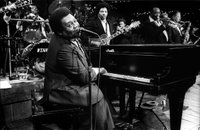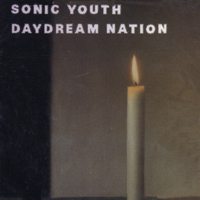Add some more records to the history vaults
I thought this article today in the paper was so very interesting. It just gets me all worked up and intrigued, combining two things I love: history and music. Getting to be a music archivist for the Library of Congress, adding records to preserve by everyone from Fats Domino to Sonic Youth, would be my dream job:
50 Influential Sounds That Won’t Be Silenced
WASHINGTON — A high school band plays Beethoven. President Calvin Coolidge delivers his inaugural address. Fats Domino turns “Blueberry Hill,” a hit for big-band leader Glenn Miller, into a rock ‘n’ roll classic.
 They’re among the 50 records deemed worthy of preservation this year by the Library of Congress.
They’re among the 50 records deemed worthy of preservation this year by the Library of Congress.
“The National Recording Registry represents a stunning array of the diversity, humanity and creativity found in our sound heritage, nothing less than a flood of noise and sound pulsating into the American bloodstream,” Librarian of Congress James H. Billington said in announcing the choices for 2006.
The library used the occasion to announce a rare find: a 1940 jam session featuring tenor saxophonist Lester Young. The night club couldn’t be positively identified, said Gene DeAnna, head of the library’s recorded sound section, but it may have been the Village Vanguard in downtown Manhattan.
“It wasn’t Carnegie Hall,” DeAnna said at a news conference. “At one point you can hear the MC announcing, ‘The chili con carne is ready, if anyone wants to order it.’”
Loren Schoenberg, executive director of the Jazz Museum in Harlem, compared it to finding a William Shakespeare sonnet or a short story by Ernest Hemingway.
The library also announced it had recently received 186 test pressings of records made in the late 1950s or early 1960s, among them 25 songs by bluesman Robert Johnson. The pressings, donated by blues collector Tom Jacobsen, were used to make the first Johnson reissue anthology, “King of the Delta Blues,” which influenced the Rolling Stones and other groups.
California’s Modesto High School band did well in competitions of the 1920s and 1930s. Few high school bands were recorded until the late 1940s, making the Modesto school’s 1930 version of Beethoven’s “Egmont Overture” a rarity.
Coolidge, known as a man of few words, spoke for 47 minutes in the first broadcast inaugural address, in 1925. Stevie Wonder’s “Songs in the Key of Life” made the list, along with an episode of “Command Performance” hosted by Bob Hope in 1942 and broadcast to the troops on Armed Forces Radio.
 Fats Domino recorded his relaxed version of “Blueberry Hill,” adding Creole cadences, in Los Angeles in 1956. Other rock classics being inducted include Jerry Lee Lewis’ “Whole Lotta Shakin’ Goin’ On” and Buddy Holly’s “That’ll Be the Day,” both from 1957; the Jimi Hendrix Experience’s “Are You Experienced?” from 1967; and Sonic Youth’s landmark noise-rock album “Daydream Nation,” from 1988.
Fats Domino recorded his relaxed version of “Blueberry Hill,” adding Creole cadences, in Los Angeles in 1956. Other rock classics being inducted include Jerry Lee Lewis’ “Whole Lotta Shakin’ Goin’ On” and Buddy Holly’s “That’ll Be the Day,” both from 1957; the Jimi Hendrix Experience’s “Are You Experienced?” from 1967; and Sonic Youth’s landmark noise-rock album “Daydream Nation,” from 1988.
Other sounds to be preserved include a radio broadcast by Clem McCarthy of Joe Louis’ first-round knockout of Max Schmeling in 1938. The audience was estimated at 70 million. “The symbolism of an African-American defeating a citizen of the political state that proclaimed the superiority of the white race was lost on no one,” the library commented.
Samuel Barber’s “Adagio for Strings” was performed the same year by the NBC Symphony, led by Arturo Toscanini. The library noted that the work has been called the “American anthem for sadness and grief.”
Every year since 2000, the library has registered recordings “that are culturally, historically or aesthetically important and/or inform or reflect life in the United States.” Last year it unveiled newly discovered tapes of Thelonious Monk and John Coltrane from 1957, a discovery that yielded one of the top-selling jazz CDs of 2005.
From the AP newswire.



 Name: Heather Browne
Name: Heather Browne